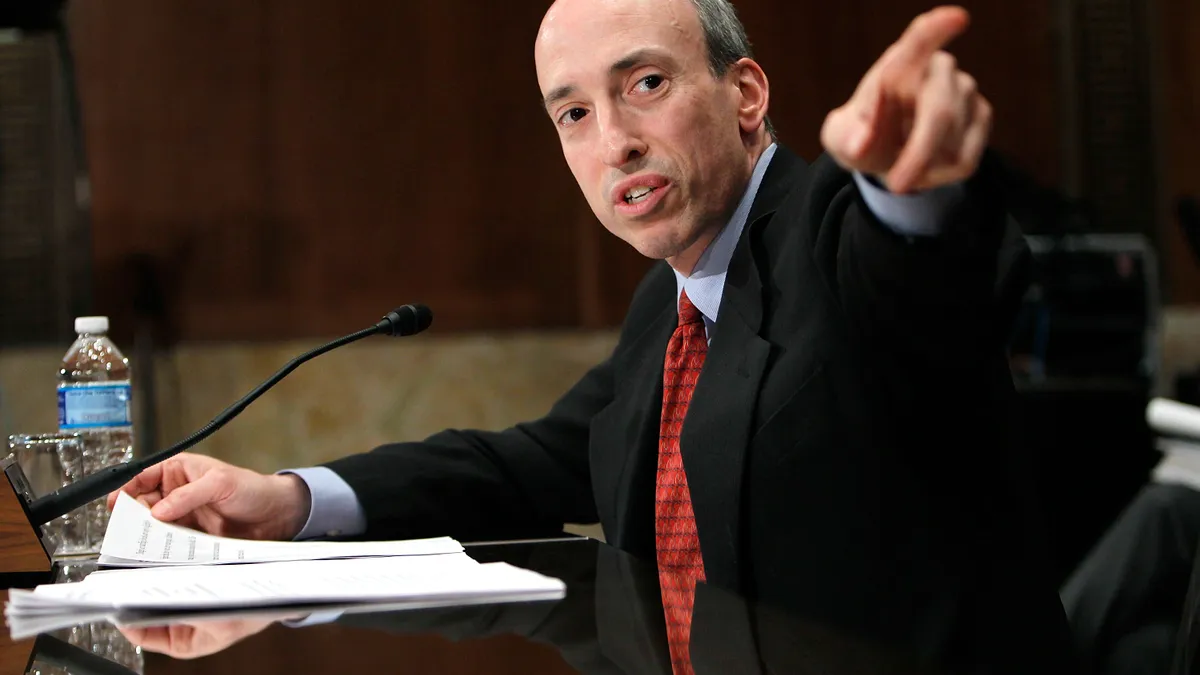Dive Brief:
- The Securities and Exchange Commission (SEC) approved tougher standards for audits involving more than one audit firm, saying stricter rules will streamline coordination and communication between firms and improve audit quality and investor protection.
- The amended rules, adopted by the Public Company Accounting Oversight Board (PCAOB) in June, require a lead auditor to obtain statements that other auditors in an engagement are sufficiently skilled and follow solid policies and procedures. A lead auditor also needs to ensure the independence of the other auditors and prioritize supervision of higher-risk facets of the audit.
- “The growing complexity and international operations of public companies has led auditors increasingly to rely on other auditors — working across different firms, countries and even languages,” SEC Chair Gary Gensler said in an Aug. 12 statement, adding that 26% of audits involve more than one firm. “It is important that there be robust standards for how lead auditors supervise, communicate with and coordinate with other auditors.”
Dive Insight:
The requirements, including amendments and a new standard, are the first adopted by the PCAOB since Gensler shook up the board two months after taking his post as head of the SEC in April 2021.
The PCAOB oversees the accounting firms that audit public companies and was established after the Enron accounting scandal under the Sarbanes-Oxley Act of 2002.
Gensler removed William Duhnke, a Trump administration appointee, as PCAOB chair in June 2021, underscoring his aim to put the board “on a path to better protect investors by ensuring that public company audits are informative, accurate and independent.”
“I don’t think that the PCAOB was living up to its potential or mission,” Gensler said in a Wall Street Journal interview after removing Duhnke, adding he supports “taking a new direction and reinvigorating” the board. The PCAOB has fallen short in enforcement against accounting firms, setting audit standards and its contacts with investors, he said.
In October an internal board report said flaws persist in the auditing of U.S. companies, especially in internal control over financial reporting, reporting on revenue, accounting estimates, inventory tracking and auditor independence.
The following month Gensler appointed Erica Williams as the new chair. She served as a deputy chief of staff to three former SEC chairs and assistant chief litigation counsel for the agency’s enforcement arm.
When adopting the new rules in June, PCAOB flagged shortcomings common to work performed by multiple auditors, including in calculating revenue, accounts receivable, internal control over financial reporting and fair value measurements and other estimates.
Errors by lead auditors “occurred at large and small firms, domestic and international,” the board said when announcing the standards. “Among the most egregious findings, lead auditors failed to perform an audit or participated very little in an audit, and instead issued an audit report on the basis of procedures performed by other auditors.”
Gensler said he hopes that the PCAOB continues to tighten rules for audit firms.
“I look forward to the additional standard-setting work the PCAOB will undertake to live up to its founding vision,” Gensler said in his Aug. 12 statement. “If Sarbanes-Oxley, signed into law 20 years ago, meets its full potential, trust in our markets can grow — and that benefits investors and issuers alike.”













